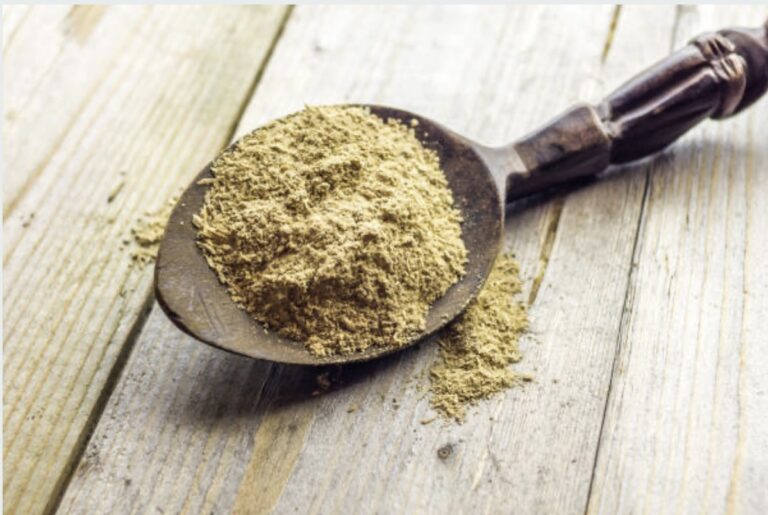Herbal Remedies For Anxiety: Understanding Anxiety And Its Impact On Health
Definition, symptoms, and triggers of anxiety
Anxiety isn’t just feeling a bit jittery before giving a presentation. No way, Jose. It’s a real, often terrifying experience that can leave you feeling as if you’re hanging on by the skin of your teeth. There are many prescription medications you could take, but I prefer to go with natural herbal remedies for anxiety.
Symptoms are as diverse as a chameleon’s wardrobe. Some folks have heart palpitations or hot flashes, others get stomach issues or headaches. And triggers? What isn’t a trigger? An upcoming date, a sudden bill, or even getting stuck in the darn elevator can trigger an anxiety attack.
Biological and psychological effects of anxiety
Our bodies don’t take kindly to being in constant ‘fight or flight’ mode. Biologically, it can lead to high blood pressure, a weakened immune system, and even some unpleasant digestive issues. Psychologically, we’re looking at lowered self-esteem, difficulty concentrating, and even depression. It’s not just a walk in the park, anxiety, is it?
The role of lifestyle and stress management in dealing with anxiety
Lifestyle plays a lead role, too, like a suspect in a detective novel. Regular exercise can really chip off some of the anxiety over time, and a balanced diet does miracles. Believe it or not, good sleep hygiene can make a world of difference so don’t snub your snore-time. As for stress management, think of meditation, mindfulness, and yes, herbal remedies!

Introduction to Herbal Remedies For Anxiety
History and origins of using herbs in medicine
Our ancestors are the original gangsters when it comes to herbs, using them way before we had pills in bottles. Ancient Egyptians were making herbal remedies whilst some of us were still drawing stick figures on cave walls. Herbs were humanity’s first medicine, after all, blended and brewed to treat all kinds of ailments.
Effectiveness and benefits of herbal remedies
Two words: Tolerance and side-effects. Chemically synthesized drugs can have side effects that make you wonder if the cure’s worse than the disease. Herbal medicines, typically, are gentler on the system with fewer side effects. They work in harmony with the body instead of trying to strong-arm it into submission.
Safety and precautions in choosing and using herbal remedies
Just because something’s natural, doesn’t mean it’s as safe as a lullaby. You still need to do your homework before trying any herbal remedy. Start small, and see how your body reacts. And please, don’t mix your herbs any more than you’d mix your drinks.

Exploring Herbal Remedies For Anxiety
Lavender: Uses and research related to anxiety relief
Ever walk past a lavender bush and suddenly feel like you haven’t got a care in the world? Lavender’s as calming as a lullaby from your grandma. Some exciting research even suggests inhaling lavender oil might just be as relaxing as some medications.
Chamomile: Understanding its calming effects
Chamomile’s the unsung hero of the herbal world. It’s your mum’s home remedy of choice, guaranteed to soothe. It has a subtle power that can help reduce symptoms of anxiety. Next time you need calming down, why not do it sipping on a chamomile tea?
Kava Kava: Insights into its relaxing properties
Been on a date with Kava Kava yet? It’s a root found in the Pacific Islands, and it’s been making waves in the anxiety battle. It may promote a sense of sociability without hampering your mental clarity. A win-win, don’t you think?

How To Incorporate Herbal Remedies Into Your Routine
Dietary Recommendations: Including herbs in your daily meals
Spice up your life, literally. Have you tried throwing a sprig of rosemary in your soup? Or adding some crushed lavender to your lemonade? Being adventurous in the kitchen can also mean enjoying the benefits of herbs day in, and day out.
Herbal Teas: Consumption guide & recipes
Herbal teas are not just hipster hype. These potent brews could replace your morning coffee or your evening vino. There’re literally thousands of recipes to experiment with. My favorite? A chamomile and lavender blend, adds a sweet calming note to my day.
Herbal Supplements: Choosing the right product
Supplements can make incorporating herbs into your routine convenient, but be Sherlock in the supplement store. Check if the brand does independent testing for quality. Look out for added fillers and unwanted additives. Go for high quality, every time.

Role of Complementary Therapies
The importance of combination therapy: herbs, exercise, and mindfulness
Remember, folks, herbs aren’t miracle cures. They’re the backup singers in your anxiety management band. Exercise, good nutrition, and mindfulness practices are the lead performers. This trio, along with your herbal remedies, can create a sweet harmony of relief from anxiety.
Herbal remedies and professional counseling
If you’ve got a good counselor on your team, it’s like having a world-class coach. Combining this with herbal help can push you further along the path to recovery. Counseling can give you the tools to cope, and herbs provide the extra buffer of calm.
Working with healthcare professionals while using herbal remedies
When going the herbal route for anxiety relief, take your doc along for the ride. Some herbs can interfere with medications you may already be taking. Your healthcare provider can guide you as you navigate the herbal pathway to calm.

Interactions & Safety Considerations
Potential interactions of herbal remedies with other drugs
Alert! Herbs, though natural, can play tug of war with other medicines in your body. For example, Herbal remedies for anxiety. St. John’s wort, a well-known antidote to depression, could lessen the efficacy of birth control pills. Best practice –discuss with your doc first.
Understanding the side effects of herbal remedies
Some herbal remedies can have side effects. For instance, kava kava can cause drowsiness – maybe not so great if you’re operating heavy machinery. Each herb has its own profile of possible side effects, so know your herbs like you know your best friends.
Consultation with healthcare professionals before starting herbal remedies
Can’t say this enough: Don’t start any herbal therapy without talking to a health professional first. Imagine them as your tour guides on your herbal adventure. They’ll steer you away from the storms and towards safer harbors.
We’ve unpacked anxiety like grandma’s old suitcase and peered into the world of herbal remedies. Lifestyle adjustments and professional counseling make a strong main act, while herbs like lavender, chamomile, and kava provide backup vocals in your anxiety-management band. Don’t forget to wave the safety flag and consult with a healthcare professional before trying new things.
Frequently Asked Questions
There’s no generic answer here, mate. Depends on the herb, its form, and your personal timetable. But typically, many people find comfort in taking relaxing herbal concoctions in the evening.
Don’t expect a magic show, my friend. For some, relief comes within a few hours. For others, it may take several weeks of consistent use. Herbal remedies are the tortoise, not the hare, in the healing race.
Here’s where you need a doctor’s nod. While some herbs can play nicely with your meds, others might stir things up. Always discuss with your healthcare provider before introducing new herbs to your routine.


